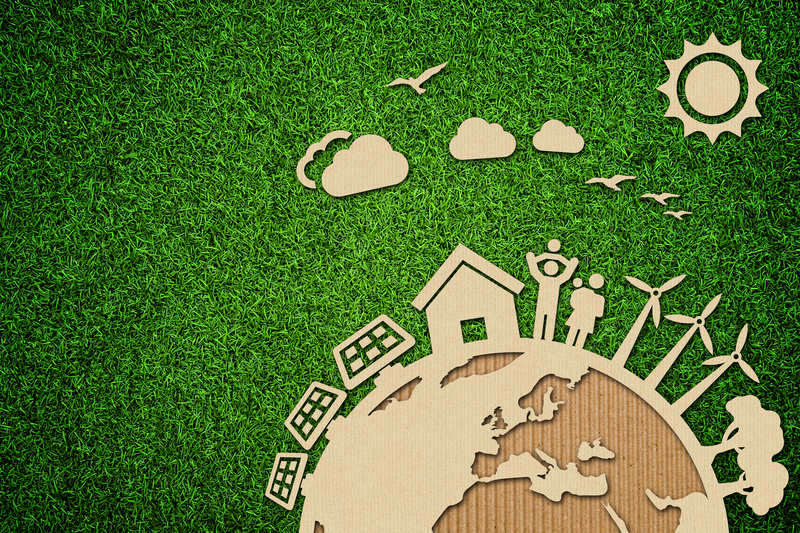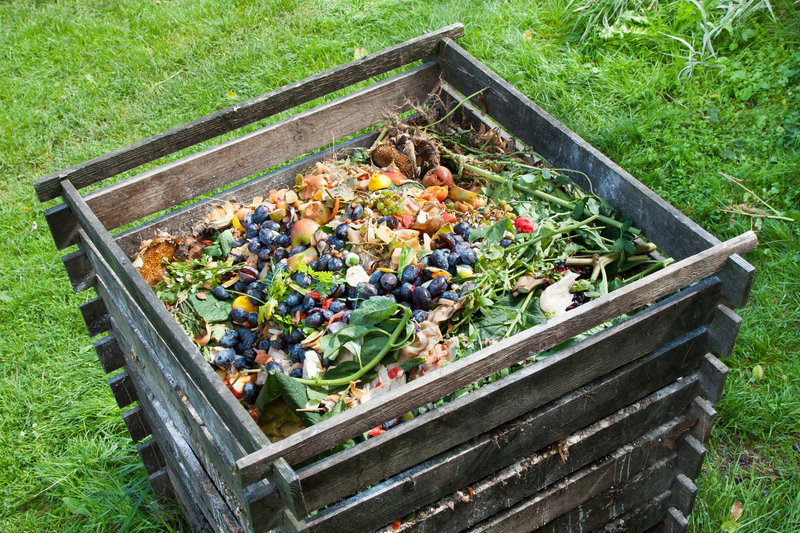Simple Steps to Ensure Safe PPE Waste Management
The pandemic has dramatically increased the use of personal protective equipment (PPE) like masks, gloves, face shields, and gowns. While PPE keeps us safe, its improper disposal can pose serious environmental and health risks. In this comprehensive guide, we'll walk you through simple steps to ensure safe PPE waste management for businesses, healthcare facilities, and individuals alike.

Why PPE Waste Management Matters
PPE waste is considered medical waste and, if not managed correctly, can lead to contamination, health hazards, and even environmental pollution. It is therefore essential to follow best practices for PPE waste disposal to protect public health and support sustainability.
- Prevents the spread of infectious diseases
- Reduces environmental pollution
- Ensures compliance with regulations
- Enhances organizational reputation and social responsibility
Essential PPE Waste Management Practices
Adopting safe PPE waste management steps is crucial for every entity using protective equipment. Here are the essential principles:
1. Know the Types of PPE Waste
- Single-use masks and respirators
- Disposable gloves (latex, nitrile, vinyl)
- Face shields and goggles
- Gowns and protective suits
Understanding which items are considered PPE helps in segregating waste properly for safe disposal.
2. Segregate PPE Waste at the Source
Proper segregation is the first and most important step in controlling PPE waste. Ensure that PPE waste is separated from regular waste to prevent contamination.
- Clearly label PPE waste bins: Use color-coded bins marked for PPE wastes only.
- Place bins in strategic locations: Put disposal units at entrances, exits, and near PPE usage points.
- Train staff: Ensure everyone is aware of where and how to dispose of used protective gear.
3. Use Secure and Safe PPE Disposal Containers
Always choose leak-proof and puncture-resistant containers to collect used PPE. This reduces the risk of spillage and exposure for cleaning staff or waste handlers.
- Line bins with plastic bags to prevent leakage
- Avoid overfilling bins
- Keep containers sealed and locked
4. Implement a PPE Waste Handling Protocol
Develop a clear, concise protocol for PPE waste management and communicate it to all relevant personnel.
- Designate responsible staff for PPE waste collection and handling.
- Schedule regular pickups to avoid overflowing waste containers.
- Provide continuous training on PPE waste management for all team members.
5. Ensure Safe Storage Before Disposal
If immediate disposal is not possible, store collected PPE waste in a secure area away from public access, animals, and weather conditions.
- Label storage areas with hazard warnings
- Ensure good ventilation
- Monitor for leaks, pests, or odors
- Restrict access to authorized personnel only
6. Partner with Licensed Waste Disposal Services
Engage a licensed biomedical or hazardous waste disposal company to manage PPE waste removal. These providers have the expertise and certifications necessary for safe waste treatment and disposal.
- Verify credentials and adherence to local regulations
- Request documentation of proper disposal
Individual Steps to Manage PPE Waste Safely
Everyday individuals can make a significant difference when they manage PPE waste responsibly.
- Do not throw used PPE in public areas or regular household garbage
- Double-bag PPE waste before discarding
- Disinfect used PPE if possible, before disposal
- Wash hands thoroughly after handling used PPE
- Follow local guidelines for medical waste disposal
Safe Disposal of Face Masks and Gloves
The most widely used forms of PPE are masks and gloves. Here is an easy process to dispose of them:
- Remove masks and gloves carefully, avoiding contact with the outer surfaces
- Place them in a plastic bag or lined bin marked "PPE Waste"
- Seal the bag tightly before placing in a secondary container
- Wash your hands thoroughly with soap and water
- Do not attempt to recycle single-use PPE
Legal and Regulatory Compliance
Most countries and regions have strict regulations governing PPE waste disposal. Non-compliance can result in fines and legal action, especially for businesses and healthcare facilities.
- Familiarize yourself with local and national PPE waste disposal laws
- Use only authorized waste contractors
- Keep records of waste generation and disposal for audits and compliance
Guidelines from the World Health Organization (WHO) and CDC
Global bodies like WHO and the Centers for Disease Control and Prevention (CDC) provide best practices on managing infectious and PPE waste, including:
- Segregation at point of use
- Safe containment
- Disposal via incineration or approved landfills
- Emphasizing the safety of waste handlers
Always check for the latest updates and integrate their recommendations into your protocols.
Environmental Impact of Improper PPE Disposal
The world has seen a dramatic increase in PPE-induced plastic pollution. When not managed correctly, discarded masks and gloves can end up in:
- Oceans and waterways, harming marine life
- Landfills, contributing to non-biodegradable waste
- Public spaces, causing visual pollution
- Blockages in drainage systems
Proper PPE waste management is essential to mitigate these environmental hazards.
Innovative PPE Waste Solutions
Many organizations are now investing in sustainable PPE disposal and recycling methods to reduce their environmental footprint.
Examples of Sustainable PPE Waste Management
- PPE collection drives for specialized recycling
- Thermal destruction (incineration with energy recovery)
- Development of biodegradable or reusable PPE
- Upcycling used PPE in construction materials
How You Can Contribute to Safe PPE Waste Practices
- Encourage the use of eco-friendly PPE when available
- Promote community education on PPE waste dangers
- Organize or participate in PPE waste collection initiatives
- Support research into sustainable PPE management solutions
Educating Your Community on PPE Waste Management
Creating awareness about the dangers of improper PPE disposal and the importance of safe PPE waste management is key. Here are ways to educate and involve your community:
- Distribute flyers and posters in public places
- Host informational sessions or webinars
- Use social media to share facts and best practices
- Partner with local authorities to install PPE waste bins

Summary: Simple Steps for Safe PPE Waste Management
Safe and effective PPE waste management is not just the responsibility of healthcare professionals. Every business, organization, and individual has a role to play. By following these simple steps, you can ensure the protection of public health and the environment:
- Correctly segregate and collect PPE waste
- Use secure, labeled, and dedicated PPE disposal bins
- Partner with certified waste disposal services
- Follow local laws and international best practices
- Encourage safe disposal habits in your workplace and community
Spread awareness, adopt best practices, and prioritize the safe management of PPE waste to ensure a healthier planet for everyone. Every protective action counts!
Frequently Asked Questions on PPE Waste Management
What is considered PPE waste?
PPE waste includes any single-use item designed to protect against biological hazards, such as face masks, gloves, gowns, face shields, and disposable respirators.
Can I recycle disposable masks and gloves?
No, disposable masks and gloves are not recyclable through standard facilities due to contamination risks and material composition. They should be disposed of as PPE waste.
What should I do if I can't find a PPE waste bin?
If a PPE-specific bin is not available, double-bag used PPE and keep it separate from regular waste until it can be disposed of safely.
Are there penalties for improper PPE waste disposal?
In many regions, improper disposal of PPE, especially by organizations, can result in fines or other penalties. It's always best to check and comply with local regulations.
What are the risks of not managing PPE waste safely?
- Heightened spread of infectious diseases
- Severe environmental pollution
- Legal consequences for non-compliance
- Loss of public trust
Implementing these safe PPE waste management guidelines is a vital, collective responsibility. Start now for a cleaner, safer tomorrow!